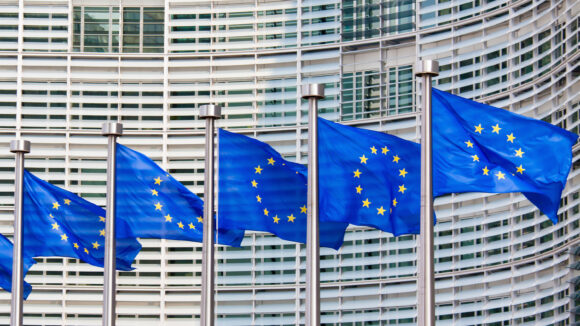EU antitrust chief Margrethe Vestager scored two major wins on Tuesday as Europe’s top court backed her crackdown against Apple’s Irish tax deal and Google’s anti-competitive practices in two landmark cases.
Vestager, who ends her term in November, has made a name for herself going after Big Tech’s tax arrangements with some EU countries and attempts to stifle smaller rivals. The court victories could embolden her successor to take a similar tack.
The EU antitrust chief cheered the judgments. “Today is a huge win for European citizens and tax justice,” she said on X of the Apple ruling, also praising the Google judgment as a big win for digital fairness.
The European Commission in 2016 ordered Apple to pay 13 billion euros ($14.4 billion) in back taxes to Ireland, saying that the iPhone maker benefited from two Irish tax rulings for over two decades that artificially reduced its tax burden to as low as 0.005% in 2014.
The Luxembourg-based Court of Justice of the European Union sided with Vestager.
“The Court of Justice gives final judgment in the matter and confirms the European Commission’s 2016 decision: Ireland granted Apple unlawful aid which Ireland is required to recover,” judges said.
They said Apple’s two units incorporated in Ireland enjoyed favorable tax treatment compared to resident companies taxed in Ireland which are not capable of benefiting from such advance rulings by the Irish tax authorities.
Apple, which said it paid $577 million in tax, 12.5% of the profit generated in the country, in line with the tax laws in Ireland in the period 2003-2014 covered in the EU investigation, said it was disappointed with the ruling.
“The European Commission is trying to retroactively change the rules and ignore that, as required by international tax law, our income was already subject to taxes in the U.S.,” Apple said.
Separately, Apple said in a regulatory filing that it was expecting to record a one-time income tax charge of up to about $10 billion in its fiscal fourth quarter ending Sept. 28.
Ireland, whose low tax rates helped it to attract Big Tech to set up their European headquarters, had also challenged the EU ruling, saying its tax treatment of intellectual property transactions is in line with other OECD countries.
Still, it has cooperated in an overhaul of global corporate tax rules and did the once unthinkable by dropping its opposition to giving up its prized 12.5% corporate tax rate. But its tax take from multinational firms has actually increased since.
The Court also threw out Alphabet unit Google’s appeal against a 2.42 billion euro fine levied by Vestager seven years ago, the first of a trio of hefty fines meted out to the company for various anti-competitive practices.
“In the light of the characteristics of the market and the specific circumstances of the case, Google’s conduct was discriminatory and did not fall within the scope of competition on the merits,” judges said.
Google voiced disappointment with the ruling.
“This judgment relates to a very specific set of facts. We made changes back in 2017 to comply with the European Commission’s decision,” a spokesperson said.
The Commission fined the world’s most popular internet search engine in 2017 for using its own price comparison shopping service to gain an unfair advantage over smaller European rivals.
Google has racked up 8.25 billion euros in EU antitrust fines in the last decade. It has challenged two rulings involving its Android mobile operating system and AdSense advertising service, and is now waiting for the judgments.
It is also fighting against EU antitrust charges issued last year that could force it to sell part of its lucrative adtech business after regulators accused it of favoring its own advertising services.
Both rulings are final and cannot be appealed.
The cases are C-465/20 P Commission v Ireland and Others and C-48/22 P Google and Alphabet v Commission (Google Shopping).
There are also ongoing investigations into IKEA brand owner Inter IKEA’s Dutch tax arrangement in a case dating from 2017, Nike’s Dutch tax agreement, and Finnish food and drink packaging company Huhtamaki’s Luxembourg tax deal.
($1 = 0.9061 euros)
Was this article valuable?
Here are more articles you may enjoy.



 Florida Engineers: Winds Under 110 mph Simply Do Not Damage Concrete Tiles
Florida Engineers: Winds Under 110 mph Simply Do Not Damage Concrete Tiles  Allstate CEO Wilson Takes on Affordability Issue During Earnings Call
Allstate CEO Wilson Takes on Affordability Issue During Earnings Call  Insurance Issue Leaves Some Players Off World Baseball Classic Rosters
Insurance Issue Leaves Some Players Off World Baseball Classic Rosters  Florida Insurance Costs 14.5% Lower Than Without Reforms, Report Finds
Florida Insurance Costs 14.5% Lower Than Without Reforms, Report Finds 

